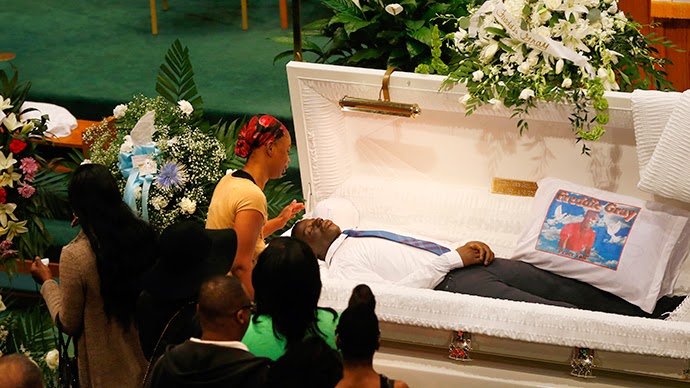It was the best of
times, it was the worst of times,
it was the age of
wisdom, it was the age of foolishness,
it was the epoch of
belief, it was the epoch of incredulity,
it was the season of
Light, it was the season of Darkness,
it was the spring of
hope, it was the winter of despair,
These opening words to Charles Dickens’ Tale of Two Cities capture my feelings as I read and watch the
news from Baltimore.
I woke up this morning to the front page news of riots last
night in the aftermath of the Freddie Gray shooting and funeral. The news
became more personal because my daughter works at Johns Hopkins
University on the northern edge of Baltimore, and the school was closed in
response to the violence. I have talked with friends and it seems like the
events in Baltimore are more of the same: Trayvon Martin, Michael Brown, Eric
Garner, Brandon Tate Brown, Tamir Rice and now Freddie Gray. Young Black men
killed in confrontations with police.
A couple weeks ago in a course on social justice that I
teach to first and second year college students, we read about the beating of
Rodney King by Los Angeles police in 1992 and the riots that followed. None of
those 18-20 year old students were alive at that time, and yet the issues were
the same that arose in Ferguson and are
at issue in Baltimore: poverty, racial injustice, police brutality,
frustration, anger and rioting. Then I thought of 24 years earlier in 1968 following
the assassination of Dr. Martin Luther King and riots that erupted in cities
across the country, and again the issues were the same.
As a nation we think we are making progress and for a time
we do. Funding for schools is increased, job training is provided, and
neighborhoods improve but then as a nation we lose our edge, our vigilance and
our concern, and again the forces of inequity and injustice take over. Many scholars
have indicated that the inequities we experience today have their roots in the
economic and criminal justice policies adopted in the early 1980’s reducing
taxes on the rich and corporations, decreasing the services and programs for
the poor and targeting drug and criminal enforcement policies in low income
communities of color. And so is it any wonder that every 20 years or so, people
explode.
I am reminded of the questions raised by Langston Hughes in
his classic poem , “A Dream Deferred:”
What happens to a dream deferred?
Does it dry up
like a raisin in the
sun?
Or fester like a
sore--
And then run?
Does it stink like
rotten meat?
Or crust and sugar
over--
like a syrupy sweet?
Maybe it just sags
like a heavy load.
Or does it explode?
At the same time I see this injustice, I am encouraged by
the Black Lives Matter movement and
other such groups of young people and young adults who have come together to
call attention to a whole range of injustices in wages, school funding, police
behavior, the right to unionize and so much more. I am encouraged that these groups
have allied themselves with more seasoned groups to work
together for common
goals. I have tried to impress upon my students that they are living in
historic times, that a social movement is emerging such as not been seen since
the Civil Rights Movement of the 1950’s and `1960’s, a movement comprise of young
and old, of rich and poor, of all races and ethnicities, of gay and straight,
of documented and undocumented – all committed to a democracy that works for
all and not the privileged few. It’s a movement fueled by anger and
frustration, informed by complex social analysis, and facilitated by social
media. Moreover, in my view it’s a movement that will not fade or go away but
is growing, expanding, and in some places like Philadelphia is becoming a force
that politicians and corporate leaders need to listen to. I suspect that is
happening elsewhere as well.
So while I grieve the fact that another Black man has died
an unnecessary death at the hands of police authorities, and it baffles me how law
enforcement personnel don’t seem to be getting the message that these sorts of
incidents will no longer go unnoticed, and I am saddened by the looting and
violence that has occurred, I see a reason for hope. In a poem to former
priest, Nicaraguan leader, and poet Ernesto Cardenal, Robert McAfee Brown wrote:
You have shown us
that beauty also
dwells
in misery’s environs
and by its presence here
can work huge
transformations
You have shown us
that there is nothing
more beautiful
than a human face
on fire with the love
of justice*
I pray that
like Ernesto Cardenal, the tragic death of Freddie Gray and so many others can
give us faces on fire with a thirst and love for justice that will not be
quenched until transformation comes.
* poem by Robert McAfee Brown "To Ernesto: Poet/Revolutionary in Liberation Theology: an Introductory Guide
Pictures from Google Images



